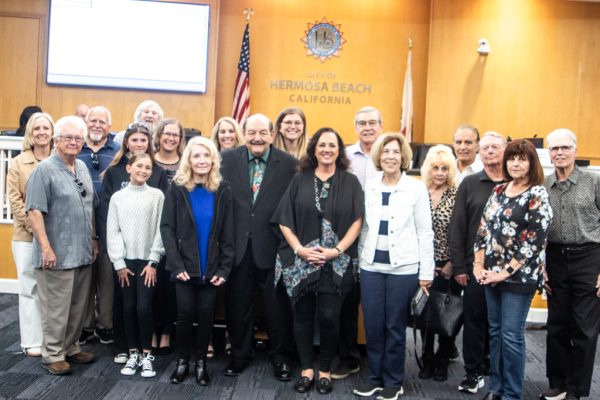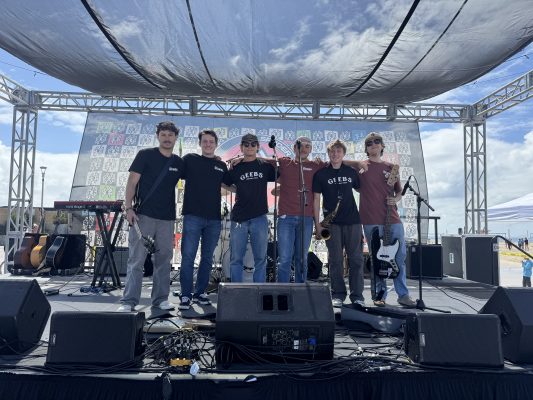by Colleen Farrell
South Bay Cities Council of Government
At the end of 2019, Elena Becerra felt on track toward achieving the American dream. She loved her full time job teaching Spanish to students at South Bay schools. The Venezuelan native and her husband had immigrated to the United States from the United Kingdom in 2015. Her husband had a lucrative job that enabled the couple to live in Redondo Beach with their two teenage children.
However, as for so many others, her life turned upside down in March of 2020 because of the pandemic.
“The language academy I taught at closed, and the Spanish programs at all the schools I taught at were canceled. I was out of a job for almost eight months,” Becerra said. Her husband also lost his job.
COVID exacerbated pre-existing marital tensions and the couple separated. Soon after, her children moved in with their father. Becerra stayed in their rented home, caring for her two aging parents, who were in the United States on temporary protected status. Her mother was bed bound due to multiple sclerosis. Because she is without a social security number, she was unable to move to a care facility.
When businesses started reopening, Becerra began teaching again part-time on Zoom, but without her husband’s income, she could only cover 60 percent of her rent. Though she never stopped paying what she could, when the eviction moratorium ended in March 2022, she received a three-day eviction notice.
“I saw myself homeless. I knew this was coming. And I was doing things to avoid that moment, but in the end, it happened,” she said. “My main worry was always my parents.”
She tried to find a less expensive place to live, but with her advanced-age parents and no full-time job, she faced repeated rejection.
Eventually, she reached out to her city council representative, former South Bay Cities Council of Governments (SBCCOG) Board of Directors Chair Christian Horvath. Horvath connected Becerra with Lila Omura, a homeless outreach/housing navigator for the City of Redondo Beach.
Omura arranged a meeting with Ronson Chu, senior manager of the SBCCOG’s Homeless Services Program. Through the SBCCOG’s Client Aid program, which provides last-resort rental assistance, Chu arranged for Becerra to receive $3,200 to cover the following month’s rent. The SBCCOG’s Home Share South Bay program would also help Becerra find a renter for a spare room to help defray the cost of her future rent payments. The state’s Housing is Key program would help Becerra with the back rent owed to the landlord. Chu called the property owner and explained the plan to help.
“We were at her home and able to reach her landlord on speaker phone. It was two outreach workers, me, Elena and her father around the dining table,” Chu said. “Elena’s landlord had a great heart, and was able to work with us. When the landlord agreed with her prevention plan Elena burst into happy tears. Our outreach workers began tearing up as well.”
“I was so relieved I couldn’t believe that someone could make a phone call and say, ‘We can solve this problem.’ I could breathe again,” Becerra said. “I needed someone to pull me out. And that’s what he [ Chu] did.”
The Home Share South Bay program aspires to reduce homelessness by supplying housing resources, particularly for seniors. It matches up homeowners, and renters with spare rooms for rent with tenants seeking housing.
“[I said] that’s perfect. That’s what I’m looking for. My dad needs a friend, who is close to his age,” Becerra said.
Becerra offered the room to 62-year-old Ron Bachmeier, now semi-retired following a career at Trader Joe’s. He now helps seniors on the Palos Verdes Peninsula through the downsizing process as they move into assisted living situations. He also considers the living situation “perfect,” because he can come and go as he pleases, yet also has company “to watch TV with.”
Through his work, Bachmeier often sees people in a position to help. “People complain that there are so many homeless people who are struggling,” he said. He suggests people consider opening their homes. Shortly after Bachmeier moved in, Becerra landed a position as a preschool teacher in Manhattan Beach. She is now able to pay her full rent each month. She is also attending El Camino College, studying to become a full-time preschool teacher. COVID rent relief was finally granted in her case, which enabled her and her parents to remain debt-free in their home.
The SBCCOG Client Aid and Homeshare program are funded through the Los Angeles County Measure H fund. In partnership with South Bay cities, the SBCCOG utilizes this funding to develop innovative programs to combat homelessness.
Chu suggests neighbors can help each other by vouching or advocating for a person or family in peril, or helping to make calls and connections. He added, “It takes a village to house one homeless person. In this situation we were able to prevent three people from falling into homelessness.”
Home Share South Bay
Home Share South Bay, through the Silvernest online platform, updates the age-old concept of home sharing. Through this program, compatible homeowners and renters find each other. Once a homeowner and home seeker list their profiles with Silvernest, the site provides support throughout the homesharing process. It screens applicants for compatibility based on personal preferences. Rent is negotiated and can be reduced in exchange for household services.
It’s free to sign up, match and message on the Silvernest site. COVID-19 protocols are addressed in the matching process. For more information on Home Share South Bay visit: homesharesouthbay.org or contact Laurie Jacobs at laurie@southbaycities.org. ER











